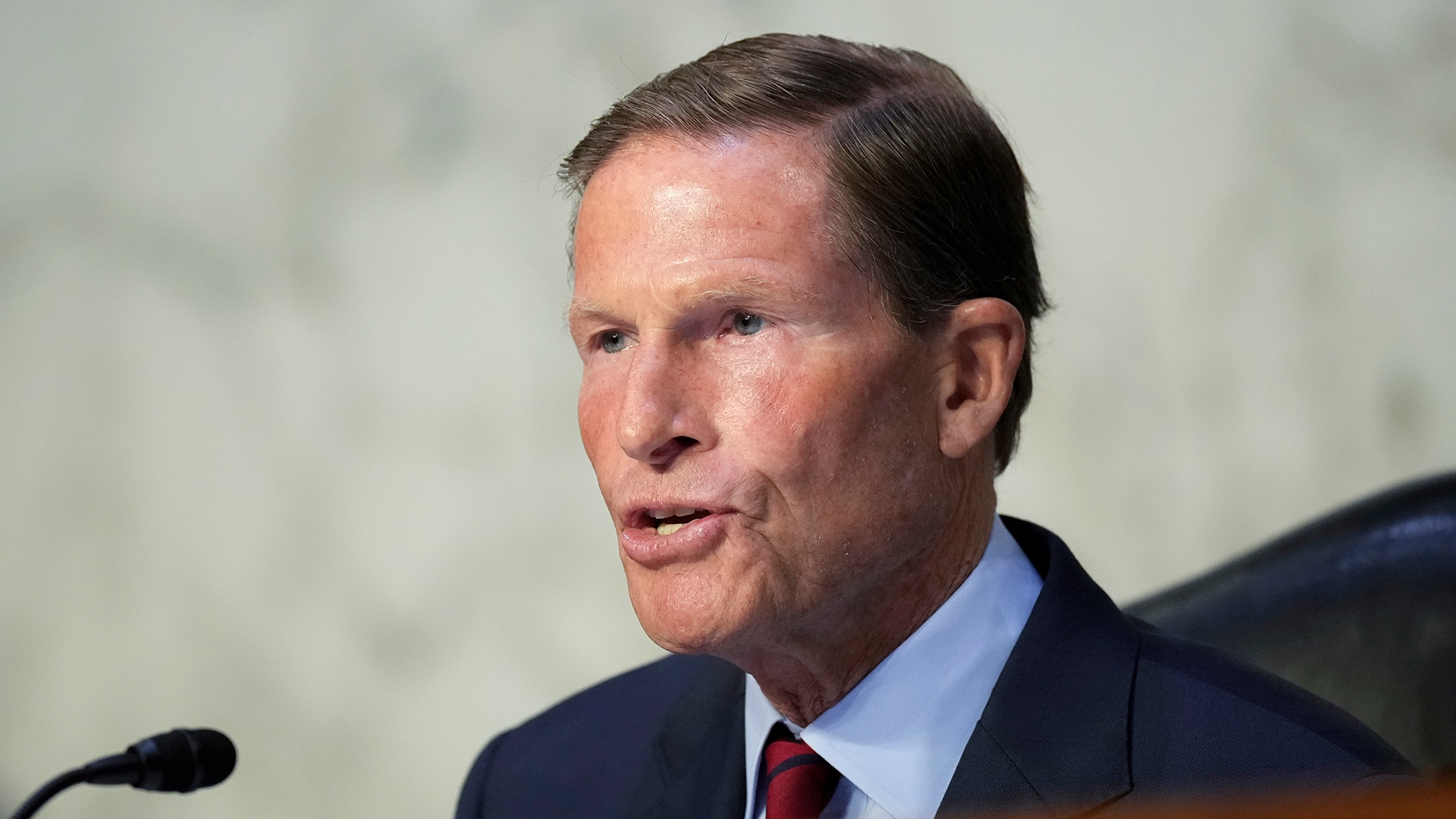Sen. Blumenthal: Saudis ‘are not minority investors’ in framework deal with PGA Tour

Moments after a nearly three-hour hearing in which members of the U.S. Senate Permanent Subcommittee on Investigations welcomed two PGA Tour representatives to Capitol Hill, Sen. Richard Blumenthal let it be known, “We’re going to be doing more.”
In speaking with Golf Channel’s Rich Lerner, Blumenthal said he was pleased with what unfolded at Tuesday’s examination of Tour COO Ron Price and Tour board member Jimmy Dunne regarding last month’s announced framework deal between the Tour and Saudi Arabia’s Public Investment Fund.
“I thought the hearing really went well,” Blumenthal said. “We learned a lot, and the American people saw a lot and heard about what went into the deal and most importantly what the issues are going forward.”
Blumenthal added, however, that he does not walk away from the hearing without lingering concerns. Mainly, the Senator from Connecticut wants to ensure that the Tour explored all its options before “selling out” and partnering with the Saudis, who, as Blumenthal notes, are an “oppressive regime” looking to sportswash its image.
When Lerner posed the idea that the Tour had no other choice but to make a deal with the PIF, which boasts unlimited coffers that the Tour simply can’t compete with, both in litigation and in the competitive arena – the Tour itself has essentially indicated this – Blumenthal scoffed, “They had choices. They did not explore other options with other funders, other investors, other sources of capital.”
“Put aside what’s past, they certainly have options now,” Blumenthal added. “The litigation is behind them, its history, it’s done, and they ought to be exploring options that involve less repressive regimes, no sportswashing, other financial options. And let’s be very clear, they were winning the litigation, they conceded.”
Lerner also asked Blumenthal, also a member of the Senate Committee on Armed Services, why the Tour was being singled out when the PIF is a minority investor in several big U.S. corporations, including Meta and Uber, and Saudi Arabia remains a strategic military and diplomatic ally of the U.S. government with Secretary of State Antony Blinken visiting the country last month to bolster ties between the two nations.
“Sports are different,” Blumenthal said. “They are central to our culture, our image abroad, our national interest, they have economic implications, and people feel strongly about golf, about sports, in a way that they don’t have about Uber or other kinds of run-of-the-mill corporations.”
Blumenthal added that people should be concerned about those companies as well, and when then asked about the Saudis’ oil empire, he seemed to take offense, accusing the premise of Lerner’s question to be “misguided” and implying “that we should simply cave to countries because they have a lot of money.”
“What we’re talking here about is our economy, an iconic American institution and a regime that murders journalists … imprisons, tortures, kills dissidence, abuses women’s rights and denies justice to the 9/11 families and sponsors terrorism,” Blumenthal said. “And oil is no longer the power it was, and we ought to be willing to stand up for America.”
With Tour commissioner Jay Monahan unable to attend Tuesday’s hearing as he wraps up the final days of his medical leave, Blumenthal said he was looking forward to talking with Monahan in a similar setting and getting more answers. He also said Monahan’s accusation that Congress left the Tour “on our own” to battle the Saudi-backed LIV Golf was “bologna,” arguing that he met with Monahan and Tour officials in Cromwell, Connecticut, earlier this year and expressed his willingness to back the Tour, and that the Tour never complained about Congress’ lack of support until Monahan’s letter.
Finally, as Blumenthal pledged that he and his fellow Senators would continue to investigate potential issues with the framework and potential final deals between the Tour and PIF, he seemed confident that the PIF would not be merely a minority investor in this partnership.
“I think we ought to use all the power we have, and if the Saudis want to play more golf and have good relationships with us, that’s fine,” Blumenthal when asked about the deal’s potential to improve foreign relations. “But that doesn’t mean they get to take over the sport. And remember, what they’re doing here is not just buying a team, they’re buying a whole sport. They are not minority investors. They have financial dominance. What they said was they have a minority representation on the board of directors. Anybody who’s been around a board of directors knows that money talks, and that’s the reason why we’re here right now: They surrendered and succumbed to the money, they reversed their position 180 degrees, they betrayed their players – or they (the players) feel that way as we noted in the hearing – so do the fans, many of them, and the 9/11 families.
“So, if money’s going to talk now, it will continue to talk. They have an equity ownership that is not only the majority, it is dominant.”
